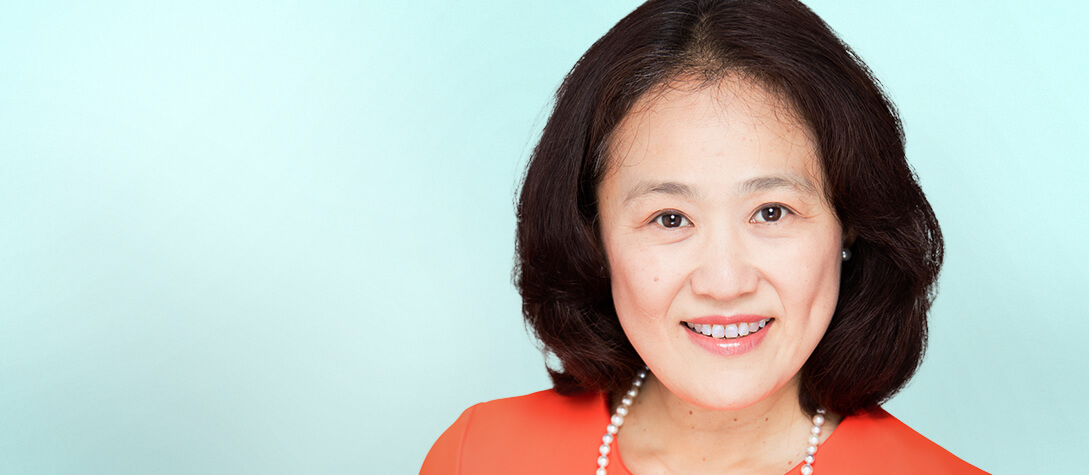Leading Women: CEO Noriko Namiki's Journey to the Helm of YWCA
Reading time: 6 Minutes
March 8th, 2018
America is the land of golden dreams. Yet Noriko Namiki, who grew up in Japan, knows that opportunities are not golden for all of our country's citizens. For instance, one of many issues Namiki has taken on is the persistent pay gap between men and women here in Hawaii. As CEO of YWCA Oahu, she's eager to make a difference for all of Hawaii's women who are facing a socioeconomic struggle, and the YWCA has a number of programs in place to help them.
“Women in America are strong, but we still have a long way to go,” she says.
On a daily basis, Namiki is engaged in shaping and implementing programs, policies, educational campaigns and support systems that guide and empower women—particularly in terms of civil rights, economic betterment and health and safety.
Namiki, who grew up in post-World War II Tokyo, knows what it means to struggle. Both parents, who were teenagers during the war, quit school after junior high to work and help their families.
In fact, Namiki doesn't remember her father ever having a day off of work. Watching her parents labor diligently inspired a lifelong work ethic in Namiki. She learned that you step up and do what needs to be done.
Namiki was the first person in her immediate family to go to college, earning a bachelor's degree from Chaminade University and going on to study journalism at the University of Arizona at Tucson's graduate school.
After just a year at UA, the opportunity to take a CNN summer internship in Tokyo presented itself, followed by a coveted CNN producer job. While working there, she married a CNN correspondent, and they returned to the U.S., where Namiki earned a master's degree in social work at Columbia University.
The couple later relocated to Hawaii, where then-CEO of YWCA Oahu Kimberly Miyazawa Frank knew Namiki's background in journalism would be the perfect fit for the new chief communications officer position she created. Later, when Frank's own position became available, Namiki was asked to serve as the interim CEO, before formally becoming CEO in 2013.
Namiki never expected to find herself working to promote women's rights, but she has grown to become passionate about the issue. She likes that the YWCA brings likeminded people together who will go the extra distance to fulfill their mission:
“Whether it's women coming out of prison or surviving domestic violence, if we do our job right, we see that we really make a difference. We see people able to move forward with their lives. I get to see that every day. It's what keeps me going.”
There's a feeling of community, even family, shared by YWCA staff and the women who go through its programs. And completing one of the programs doesn't mean the end of a relationship. Graduates of the job retention program, for example, often visit or keep the staff posted on their life's progress.
Nevertheless, her work has its challenges, particularly when it comes to finances. As with most nonprofit organizations, she has to watch the bottom line. Helping an underserved population that is often unable to pay for services rendered does not make for a thriving business model.
One such community group the YWCA serves is women coming out of prison. The goal is to help them find employment, but with Hawaii's low minimum wage, high cost of living, and not enough affordable housing available, Namiki has her work cut out for her.
In making ends meet for the YWCA, Namiki points out that working together with strong, supportive community leaders and business women "(who) are very passionate about what we do" is crucial to the organization's success.
Additional support comes from a wide range of sources, including that of the private and public sectors, who galvanize volunteers, financial backing and even provide mentorship and inspirational speakers.
In 2020, the YWCA will celebrate its 120th anniversary, which Namiki sees as a critical reminder that the organization needs to remain relevant. She makes it her goal to continue bringing value to her Hawaii community and facing the new challenges women experience in this day and age with creative and innovative solutions.
Meanwhile, the downtown Honolulu resident knows that to face the seriousness of her job, she needs to be sure to enjoy some downtime. Recently, she began dancing hula along with some of her friends.
“Spending time with my husband is also very important,” says Namiki. “He's my partner and my soulmate. He brings me joy, so I make time for him, even if it's something as simple as having coffee together or watching a Sunday news show.”
A Lesson to Take Away
Students sometimes ask Namiki about her road to becoming CEO. She replies that it all boils down to one rule:
“When somebody offers you something, take it. Say yes.”
Namiki was offered the CNN internship because she'd previously said yes to an internship at KITV. And her work at CNN set Namiki on a path where both chance opportunities and intelligent decision-making would eventually find her in a position to empower women.
“Sometimes we think we aren't good enough or aren't prepared for something. But, when somebody offers you (an opportunity), that person already did the vetting for you. Say yes.”
The views, opinions and/or positions expressed by the interviewee in this article are his or hers alone and do not necessarily reflect the views, opinions and/or positions of Bank of Hawaii.
You're about to exit BOH.com
Links to other sites are provided as a service to you by Bank of Hawaii. These other sites are neither owned nor maintained by Bank of Hawaii. Bank of Hawaii shall not be responsible for the content and/or accuracy of any information contained in these other sites or for the personal or credit card information you provide to these sites.




